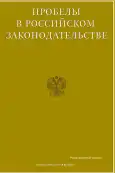Current Problems of Countering Fraud in the Sphere of Computer Information
- Authors: Akkaeva H.A.1
-
Affiliations:
- North Caucasus Institute for Advanced Studies (branch) of the Krasnodar University of the Ministry of Internal Affairs of Russia
- Issue: Vol 15, No 2 (2022)
- Pages: 144-148
- Section: Articles
- URL: https://journal-vniispk.ru/2072-3164/article/view/147459
- ID: 147459
Cite item
Abstract
In the modern world, the general informatization and digitalization of computer information is of paramount importance for the implementation of many legally significant actions in a remote format. Currently, most people cannot imagine their daily life and professional activities without remote access to many information products, which is carried out on the basis of providing personal data about a person. The prevalence of the use of computer information creates significant risks of their use not only in a lawful form. So, quite often criminal communities illegally gain access to the personal data of the population and use them in the future to commit fraudulent activities. Despite the fact that Russian criminal law provides for liability for fraud in various areas, including the use of computer information, and many state authorities are actively implementing mechanisms to combat the above-mentioned illegal behavior, at present fraud in this area is one of the most common. The purpose of writing a research paper is to identify the existing problems of combating fraud in the field of computer information and determine the most effective ways to solve them. The author comes to the conclusion that in order to commit illegal actions with computer information, identification of a person is often required, which fraudsters carry out directly by contacting the owner of the relevant information. In this context, preventive and preventive activities aimed at increasing the level of information, digital and legal literacy of the population, through which it is proposed to form in people a conscious perception of the existing risks and threats of using computer information, stand out as the most promising direction for improving the mechanisms for combating this type of fraud.
Full Text
##article.viewOnOriginalSite##About the authors
Halimat Alievna Akkaeva
North Caucasus Institute for Advanced Studies (branch) of the Krasnodar University of the Ministry of Internal Affairs of Russia
Email: lel4993@mail.ru
Cand.Sci. (Law), Police Colonel, Head of the special technical disciplines Department Nalchik, Russia
References
- Barchukov V.K. On the issue of qualification of fraud in the field of computer information // Gaps in Russian legislation. 2017. No. 2. No. 128-130.
- Barchukov V.K. The direct object of fraud in the field of computer information // Gaps in Russian legislation. 2018. No. 7. No. 154-157.
- Bondar A.G. Actual ways to counteract modern fraud // Gaps in Russian legislation. 2018. No. 3. S. 366-369.
- Vrembyak A.A., Sharypova T.N. Counteraction to fraud in the sphere of computer information // Innovations. The science. Education. 2020. No. 23. S. 1388-1391.
- Kropachev S.Yu. Fraud in the field of computer information as a threat to economic activity: topical issues of qualification // Modern science: topical problems of theory and practice. Series: economics and law. 2020. No. 4. S. 183-187.
- Minbaleev A.V. Problems of using artificial intelligence in combating cybercrime // Bulletin of the South Ural State University. Series: right. 2020. V. 20. No. 4. S. 116-120.
- Sinyavskaya S.P. Some issues of combating fraud in the field of computer information // Criminalist. 2020. No. 4 (33). pp. 3-7.
- Fokin S.A. On some features and prevention of fraud committed using mobile communications // Gaps in Russian legislation. 2020. No. 5. S. 279-283.
- Khutuev V.A., Kashirgov A.Kh. To the question of the qualification of fraud and its differentiation with some related compounds // Gaps in Russian legislation. 2019. No. 5. P. 121-125.
- Shkhagapsoev Z.L., Tutukov A.Yu. Features of detecting fraud in the field of computer information // Socio-political sciences. 2018. No. 1. No. 132-134.
Supplementary files








